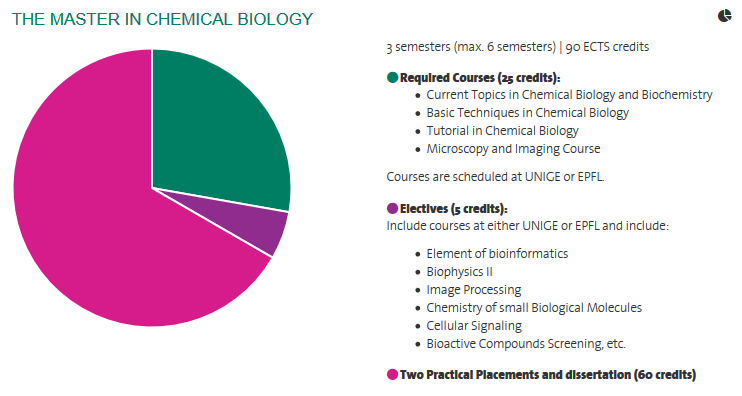At the intersection of several disciplines, chemical biology calls for a new generation of researchers who speak the language of chemistry and biology with equal fluency. What are the educational challenges, if any, behind this training? Nicolas Winssinger, Professor in Organic Chemistry at UNIGE and member of the NCCR Education Committee, gives his opinion.
What is your definition of chemical biology?
Your question reminds me of a 2015 article in Nature Chemical Biology which presented a selection of responses given by prominent scientists in the field and highlighted the challenge of a precise definition. It is hard to define chemical biology because the scope of the field is changing with the emergence and evolution of technologies. For me, it is first and foremost a different approach to research centered on the recognition that chemistry has a lot to bring to biology and vice versa.
Do you consider that more and more scientists should be trained in this cross-disciplinary expertise?
Yes, there is a clear demand for researchers with a chemical biology training both in academia and industry. While there has always been a demand in academia, the shift in industry from a background predominantly in synthesis a decade or two ago to more diverse backgrounds including chemical biology is very pronounced.
Would it be important to develop a broad-based educational initiative in chemical biology already at the graduate level?
To excel in chemical biology, it is imperative to have a strong foundation in a given discipline and build onto that foundation. I would not recommend fundamental changes in our undergraduate teaching model, even if chemical biology educational initiatives have received increasing attention at the graduate level.
The Master in Chemical Biology at the UNIGE was launched 7 years ago. How does the programme manage to get all students to study and work in chemical biology when they have different or limited background in chemistry or biology?
Indeed, we train graduates from diverse academic background. Our programme has many strong points. I would mention the curriculums of students and lab rotations that are tailor-made based on their background, interests and specific objectives. Next, there is a strong focus on practice, hands-on, research-driven training. This tailored programme is possible because of the high staff to student ratio. We create a uniquely engaging and interactive learning environment. In addition, we have a phenomenal seminar programme with opportunities for students at all stages of their career to interact with the speaker. Finally, thanks to the Excellence fellowship from the University of Geneva (we are part of it) and our Merit Stipend fellowship, we are able to attract excellent students that give high standards to the programme.
More than 80% of the NCCR Master students pursue a PhD after their graduation. Is there a perfect profile to start a PhD research in chemical biology?
There is no optimal profile to start a PhD in Chemical Biology; the field it too broad. The most important requirement is the intellectual curiosity to venture outside of the comfort zone and learn to communicate with researchers from other disciplines.
Do the cultural differences between chemistry and biology departments represent a challenge for Chemical Biology educational programmes?
This is not a hurdle at present; it was a challenge at the onset of chemical biology, but the field has yielded advances that have unified chemistry and biology departments.
The Master in Chemical Biology in a nutshell
Jointly organised by the University of Geneva and EPFL, the Master degree program in Chemical Biology was launched in 2014 by the NCCR Chemical Biology. The major goal is to train in interdisciplinary science, with emphasis on chemistry, biophysics and biology.
Students have the opportunity to gain diverse theoretical knowledge in the new field of chemical biology, to perform research in different labs pushing the state-of-the-art and to access the NCCR network resources. It is ideally suited to young scientists that envision themselves following a career in research.
The number of students is kept small (an average of 9 by year) to ensure a low student -to-staff ratio and a strong emphasis is put on a hands-on, multidisciplinary training.
Duration: Full-time one and a half-year programme
Beginning month: September
Admission criteria: holders of a Bachelor of Science (chemistry, biology, biochemistry, biophysics or equivalent), wishing to orient their career toward chemical biology, whether in an academic or industrial setting. Only above-average students are selected and students should receive permission by the NCCR Education Committee.
Language: all courses are taught in English.
More info:


Leave a comment
The editors reserve the right not to publish comments or to abridge them.